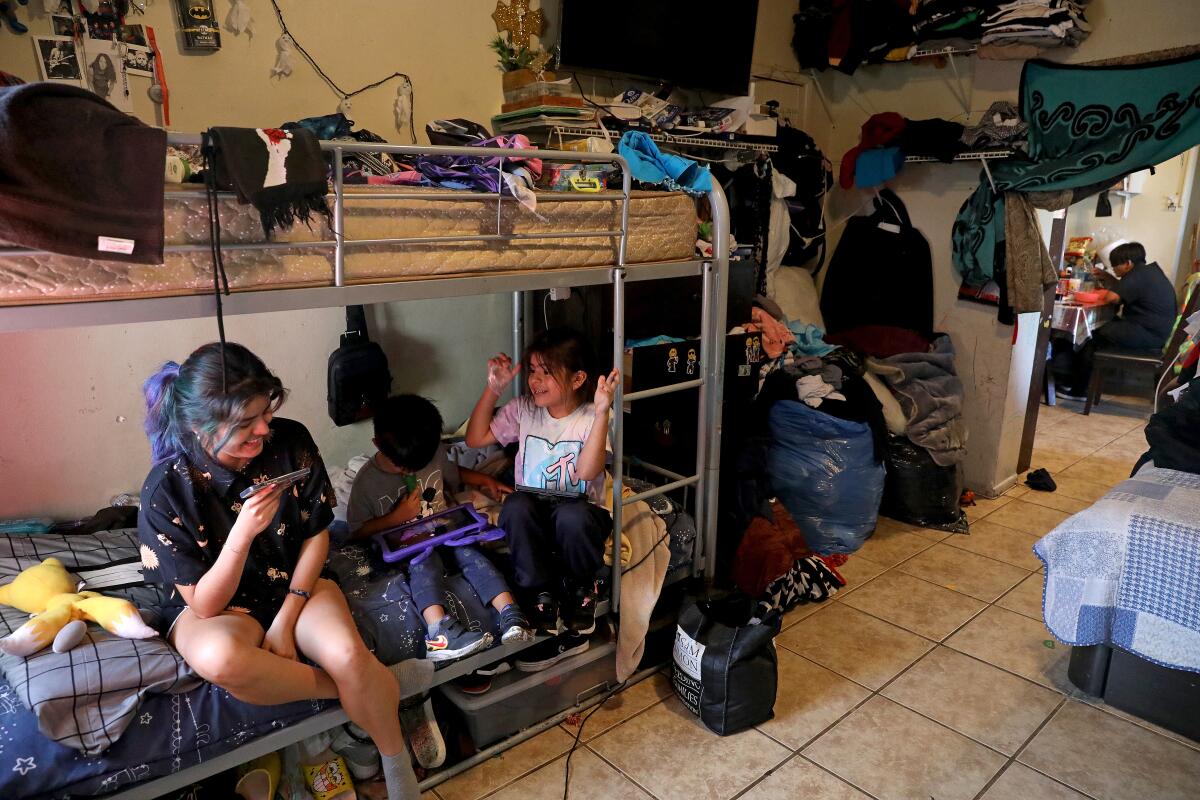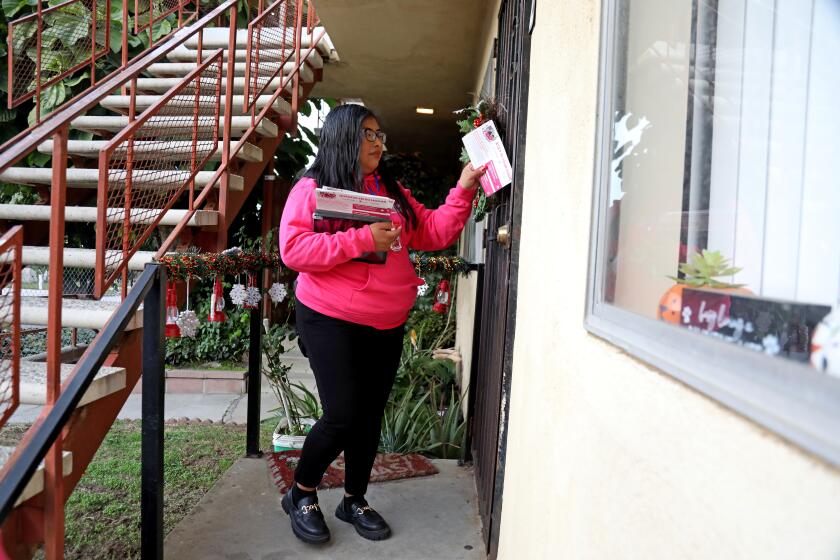Renters across L.A. are under strain and many fear becoming homeless, survey finds

- Share via
Nearly 4 in 10 renters in Los Angeles County have worried about losing their homes and becoming homeless in the last few years, according to the results of a new survey from UCLA. A similar share have worried that they or their family would go hungry because they cannot afford the cost of food.
The 2024 Quality of Life Index, prepared by UCLA’s Luskin School of Public Affairs, suggests that the county‘s renters are feeling particularly intense strain from the steep cost of housing combined with inflation.
“Everybody feels they’re being squeezed by the cost of living, even affluent people,” said Zev Yaroslavsky, the former longtime county supervisor and city councilmember, now director of the Los Angeles Initiative at the Luskin School. But for renters, that pressure is especially acute, he added.
Often tenants facing eviction don’t know about help that’s available until it’s too late to avoid losing their homes. These workers want to change that.
Overall, researchers found the high cost of living, especially housing, is pushing down quality of life for people across the county.
This year, the overall quality of life rating reported by survey respondents dropped to 53 on a scale of 10 to 100 — tying with 2022 for the lowest rating since the survey launched in 2016. The rating for cost of living dropped to 38, the lowest score ever observed in any category.
Renters reported lower satisfaction with the cost of living and jobs and the economy than nearly every other major demographic group in the survey of 1,686 county residents.
Fewer than a quarter of renters said they thought they would ever be able to buy a home in a part of L.A. where they would want to live. And about half, 51%, of renters reported being pessimistic about their economic future in L.A. County, while 61% of homeowners said they felt optimistic.
After adding 12 this year, California accounts for 210 of the country’s 550 cities where the typical home value is more than $1 million, according to an analysis by Zillow.
Pablo Estupiñan, campaign director for the tenant advocacy group Strategic Actions for a Just Economy, or SAJE, said the findings reflect his experience working with tenants across Los Angeles.
“Community members are very concerned about facing an eviction or becoming homeless,” he said. “That’s kind of been the trend we’re seeing, with wages that are pretty stagnant as rents keep going up.”
Median rent in Los Angeles is $2,083, according to Apartment List. That’s down slightly from last year but still high enough to create significant challenges for renters across the region.
Earlier this year, a report from the Housing Initiative at Penn estimated that between 97,000 and 153,000 households in the city of L.A. were behind on rent as of August 2023. While much of that rent debt was accumulated during the pandemic, a lot of it piled up more recently, indicating that economic strains since the pandemic are challenging renters.
“As much as possible, it will be easier and less expensive to keep people housed than to find people new housing after they are evicted or become homeless,” the Penn report concluded.
Last year, there were more than 47,000 eviction court filings across the county, the most since 2016, according to data compiled by Kyle Nelson, senior policy and research analyst for SAJE.
Advocates expect that number could increase again this year, after the last of COVID-era renter protections expired in February.
The survey, conducted in English and Spanish from late February to mid-March, has a margin of error of plus or minus 3%.
More to Read
Sign up for Essential California
The most important California stories and recommendations in your inbox every morning.
You may occasionally receive promotional content from the Los Angeles Times.
















